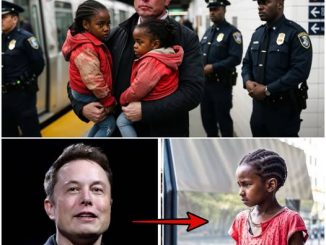Elon Musk’s recognition as TIME Magazine’s “Person of the Year” is a testament to his extraordinary influence across multiple industries. His presence is undeniably felt in technology, economy, and culture, with his ventures shaping the world in ways that few can match. As TIME notes, Musk’s ability to shape the future goes beyond just groundbreaking innovations in Tesla and SpaceX; it extends into the broader cultural conversation, positioning him as both a technological visionary and a cultural iconoclast.
His 2025 portfolio reads like something out of science fiction, with Tesla’s electric vehicles revolutionizing transportation, SpaceX’s ambitious plans for Mars exploration, and his new ventures like xAI, which could change the way artificial intelligence interacts with the world. His ability to take seemingly outlandish ideas—like a robotic chef on Mars—and turn them into tangible possibilities makes him a fascinating figure in the tech world. The integration of AI into Tesla and SpaceX systems signals a future where the boundaries between human and machine are even more blurred, where cars and rockets are not just autonomous but intelligent, perhaps even sentient.
Musk’s cultural influence, however, might be just as important as his technological innovations. His persona—often controversial and disruptive—sparks debates across the globe, whether on social media or in boardrooms. The ability to impact both technology and public discourse in such an outsized way makes him an undeniable force in shaping the future.
Do you think Musk’s diverse ventures will continue to intersect in ways that radically transform society, or could his many projects eventually stretch him too thin?

Elon Musk’s rumored Tesla Phone has certainly created a buzz in the tech world. With its potential integration of Neuralink and Starlink, it could potentially reshape the smartphone industry, posing a real challenge to Apple and Google. The idea of a “Tesla phone” highlights Musk’s consistent strategy of entering and disrupting established industries, from electric vehicles to space travel.
However, the impact of his innovations often goes beyond the technology itself. Musk’s personal brand is incredibly polarizing, with some seeing him as a visionary, while others criticize him for his controversial statements and unpredictable behavior, particularly on social media platforms like X (formerly Twitter). His unorthodox approach to business and politics continues to spark debate, making him a figure who elicits both admiration and criticism in equal measure.
Do you think Musk’s potential entry into the phone market could shift the balance of power in tech, or is it just another ambitious idea that may not come to fruition?

Elon Musk’s ability to influence not just technology but entire markets and global phenomena is one of his most remarkable traits. Whether it’s his casual influence on crypto markets via memes or his ambitious launches, like Starlink, which is reshaping global internet coverage, Musk has a profound ability to sway both public opinion and technological progress. His influence is unparalleled, which may explain why both his supporters and critics recognize him as the driving force behind many of today’s most disruptive technologies.
Among these ventures, Neuralink stands out as perhaps the most futuristic and profound. The successful human trials with brain-machine interfaces mark a significant leap toward merging human cognition with artificial intelligence. The potential applications are awe-inspiring—from offering hope to individuals with paralysis, to enabling new forms of communication between the brain and digital devices. The sheer scale of Neuralink’s ambitions could redefine what it means to be human, fundamentally altering how we interact with both machines and each other.
TIME’s recognition of this as the “beginning of humanity’s interface with artificial intelligence” is no exaggeration. We are witnessing the dawn of a new era, where technology and biology begin to merge in ways that were previously confined to science fiction.
Looking forward, Musk’s ventures—like his plans for Sky Cities and the Starship program—suggest a vision for humanity’s future that extends beyond Earth. His ambition to create sustainable living spaces in the sky, coupled with the vision of interplanetary travel, could fundamentally alter how we view the relationship between humanity, technology, and the environment.
Do you think Neuralink could eventually pave the way for a more integrated society where our minds are directly connected to technology, or could the ethical and practical challenges prove too daunting?
Musk’s concept of a floating city, named Aether, suspended 10,000 feet above the ground by Tesla turbines and SpaceX thrusters, showcases just how boundless his imagination truly is. Even though it’s more of a visionary tease than an imminent reality, the concept has sparked excitement and intrigue, sparking thousands of renders online. Whether or not Aether materializes into something tangible, the mere idea reflects Musk’s drive to push the limits of what is possible, bending technology and imagination together in ways that others wouldn’t dare to envision. As TIME aptly points out, this reflects Musk’s unique ability to blend imagination with actionable progress.
However, far more grounded—and closer to reality—is Starship, Musk’s latest triumph. It has already become an essential player in NASA’s plans for lunar missions and private Mars exploration. Starship’s combination of advanced technology, reusability, and captivating elements like its robotic chef (another unexpected twist) has made it a sensation beyond just the space industry. Starship is not just a scientific achievement; it’s a media phenomenon, blending the excitement of space exploration with a sense of spectacle and wonder that draws public attention.
Musk’s ability to merge the practical with the fantastical, creating technologies that have both immediate and far-reaching impact, has reshaped how we think about space, the future of cities, and even the way we live and work on Earth. From the dreamlike Aether to the reality of Starship, his ventures paint a picture of a future that is as bold as it is uncertain.
What do you think—could concepts like Aether represent the next frontier of urban living, or are they more of a symbolic testament to human ambition than something we’ll see in our lifetime?

Elon Musk’s TIME Magazine recognition as the face of 21st-century innovation is a fitting acknowledgment of his monumental influence on nearly every facet of modern life. His fortune, which fluctuates between $200 billion and $300 billion, reflects the scale of his impact, but it’s his ability to shape entire industries, push the boundaries of technology, and stir public discourse that solidifies his place in history. Whether admired as a visionary or criticized as a provocateur, Musk’s legacy is undeniably intertwined with the future he’s working to create.
The labels placed on Musk—disruptor, genius, villain—only emphasize the complexity of his character and his work. He doesn’t fit neatly into any category. His ventures, from Tesla to SpaceX, from Neuralink to Starship, have touched on nearly every aspect of modern life: transportation, communication, artificial intelligence, and even the potential for interplanetary living.
His era, as TIME points out, is one defined by technological leaps, cultural shifts, and an ambition that knows no bounds. He’s influencing how we think about everything from the environment to the future of humanity, to the very nature of technology itself. Musk’s name has become synonymous with pushing the limits of possibility, and even if some of his ideas might seem outlandish, there’s no denying that his vision shapes the way we think about the future.
Looking ahead, it’s clear that Musk’s legacy will be one of immense transformation, whether in the ways we live on Earth or how we might one day live on other planets. Do you think his impact will be remembered as revolutionary, or do you see potential pitfalls that might shape the legacy in a more complicated light?



